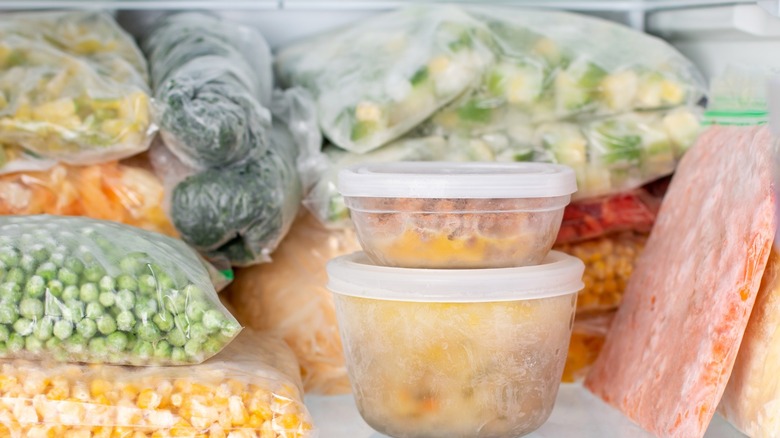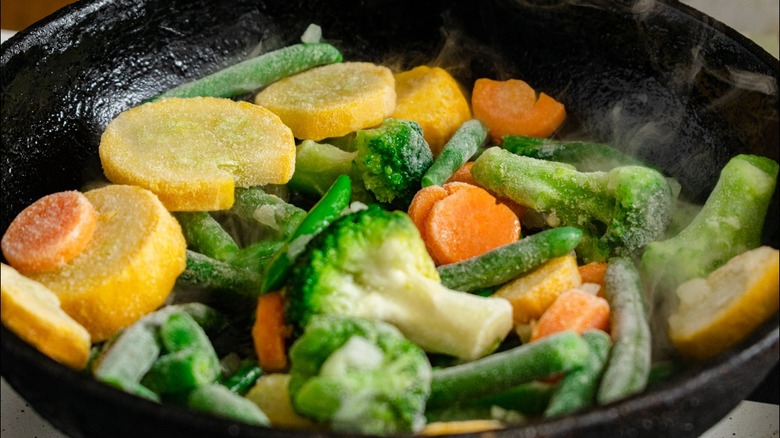How To Cook Frozen Vegetables Without Having Them Turn Out Soggy
There are few hacks in the kitchen that check as many boxes as frozen ingredients do, and in particular, frozen vegetables. They're among the best frozen foods: affordable, time-saving, and when cooked right, frozen vegetables are just as healthy and delicious as their fresh counterparts. Cooking frozen veggies "right" means that they aren't undercooked and still frozen, overcooked and mushy, or thoroughly cooked but soggy, which is potentially the worst offense. Thankfully, there are plenty of tricks to make frozen veggies taste and look restaurant-worthy and not like that pile of watery disappointment far too many of us have experienced.
Most vegetables are largely made up of water and fiber which provides their sturdy, crisp texture when eaten raw. When vegetables are frozen, the water within them freezes, which expands and then ruptures their cell structure. The water within the veggies is now on the outside in the form of ice crystals and causes the texture of the vegetables become much softer. This is exactly why thawing frozen vegetables prior to cooking with them should be avoided in order to prevent sogginess.Unlike many foods that we have to thaw before cooking them, like meat, broth, or cheese, you'll want to jump right into cooking your vegetables once they're out of the freezer.
Avoiding Thawing And Microwaving
In addition to cooking frozen vegetables to prevent sogginess, the method of cooking matters as well. Microwaving frozen vegetables will almost always guarantee sad, soggy results; the only exception to this rule is frozen veggies packaged in a microwaveable steam bag. Other cooking methods that produce winning results for frozen vegetables include roasting, air frying (you'll thank us later), pan frying, sautéing, and steaming.
Utilizing any of these cooking methods causes the excess water produced during freezing to evaporate, which may in turn require a few more minutes of cook time, but the result will be vegetables that are flavorful and fork-tender. For all of the aforementioned cooking methods except steaming, you'll want to season the veggies once the excess water has evaporated while cooking. If you're steaming veggies, you'll want to wait until they're tender and then transfer them out of your steam-pot or microwavable steam-bag and into a dish to season.
If you've ever strayed away from buying, freezing or utilizing frozen vegetables, just remember: Don't thaw them in advance or microwave them (unless you're using a steamable bag). Follow these two rules and give frozen vegetables the potential to become your new secret weapon in the kitchen.

